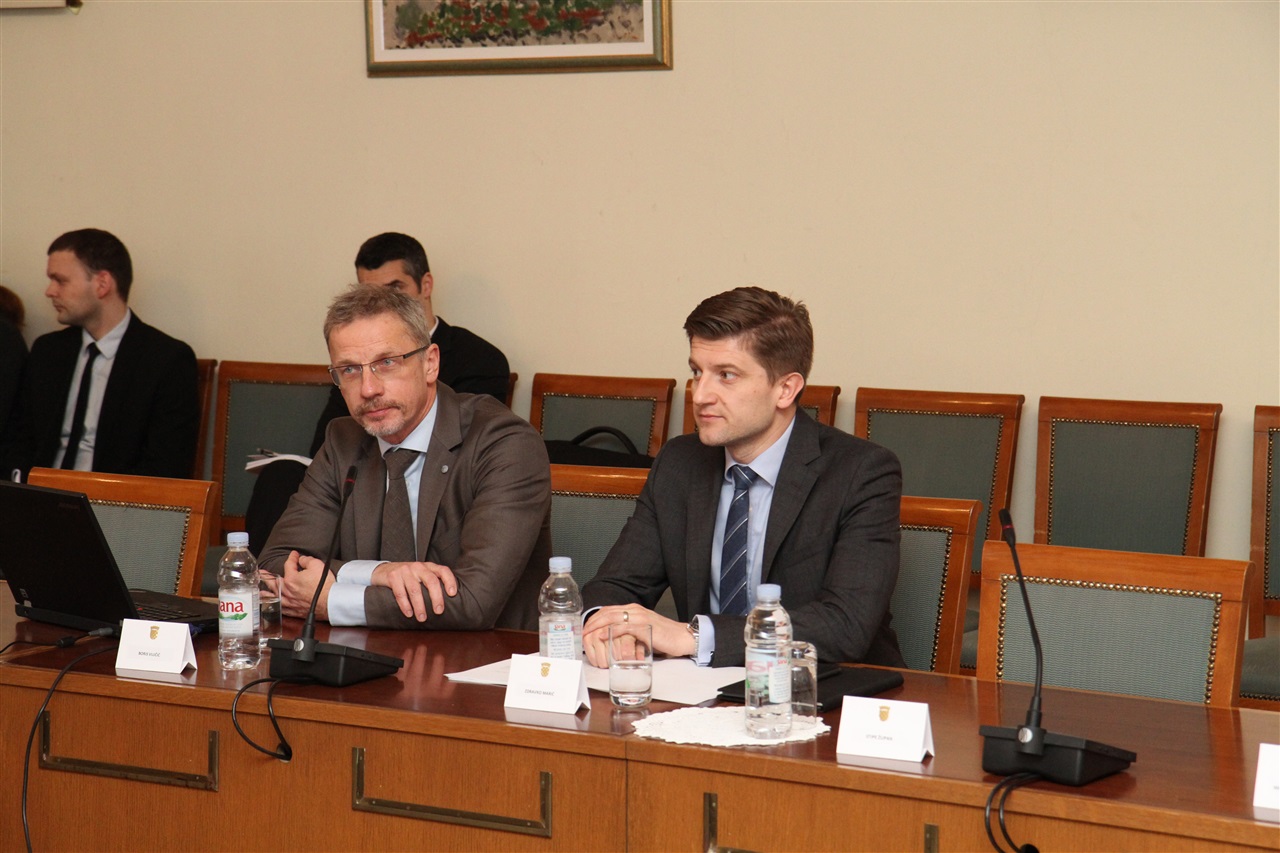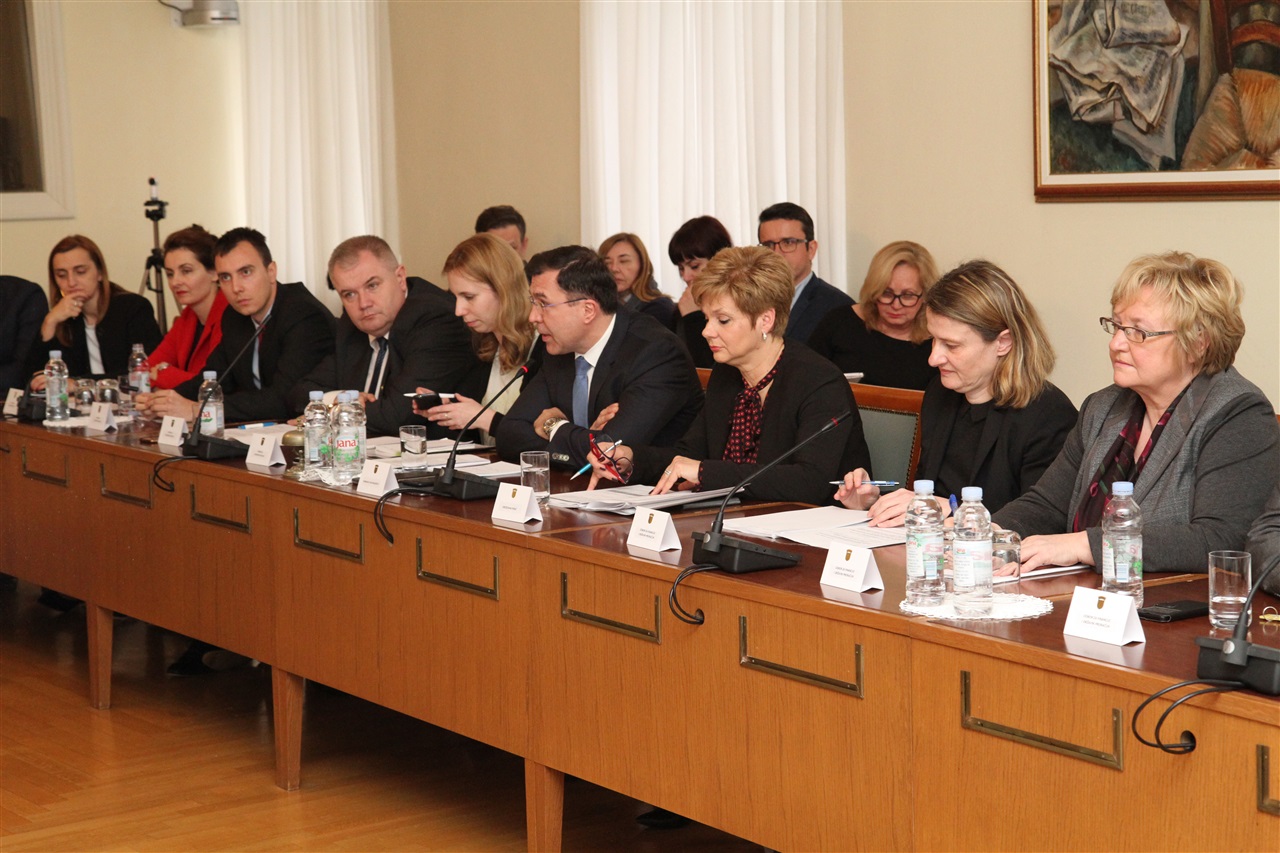
Zagreb – At the initiative of Mr Marin Škibola, MP, the Financial and Central Budget Committee and the European Affairs Committee of the Croatian Parliament held a joint session on the Strategy for the Adoption of the Euro in Croatia, presented in October 2017 by the Croatian Government and the Croatian National Bank (CNB).
The thematic session on the Strategy was attended by many MPs, members of the two committees, Finance Minister Zdravko Marić, representatives of the Croatian Employers' Association, trade unions, European Economic and Social Committee as well as by experts in economics.
In his presentation, Mr Boris Vujčić, CNB Governor, gave a summary overview of the related economic costs and benefits, described the necessary processes and the strategic determinants of economic policy needed for the adoption of euro, stressing that the Strategy did not set a target date as it depended on numerous prerequisites and conditions which Croatia should meet in the upcoming period. By joining the EU Membership, Croatia committed to adopt the euro but it currently remains the only small Member State that has not delivered on this commitment. It is empirically verifiable that small countries reap greater benefits from adopting the euro, said Governor Vujčić emphasizing Croatia's firm trading integration in the euro area and its high level of credit and deposit euroisation (75% of savings and 67% of total debt liabilities are pegged to the euro).
Among the core benefits of introducing the euro, the governor stressed the elimination of the currency risk, the reduction of interest rates, the consequent lower borrowing costs for all sectors of the economy, the reduction of risk premium and the improvement of the perception of sovereign risk, the stimulus to increase exports and investments, the elimination of currency crises risk, lower transaction costs, participation in the allocation of the Eurosystem’s monetary income and access to the financial assistance mechanisms for euro area. Talking about the risks of introducing the euro, Governor Vujčić noted the loss of independent monetary policy, the increase in the price level due to the currency conversion, the excessive capital inflows and accumulation of macroeconomic imbalances, the costs of the currency changeover, the transfer of funds to the European Central Bank and the participation in providing financial assistance to other Member States.
As regards economic policy priorities for the introduction of the euro, Mr Vujčić underlined structural reforms to increase potential growth, including the reduction of tax and administrative burden on the economy, judicial reform, increased public sector efficiency, reform of the education system, better management of state assets, increased sustainability of health and pension systems and increased use of EU funds.
In the heated debate that followed, numerous opinions against the introduction of the euro were put forward. MPs pointed to the ever louder voices of European citizens who opposed the growing influence of the European Union on their lives, the perception that the euro area project had not yield the desired outcomes, the danger of shifting the costs of introducing the euro onto merchants and citizens, the danger of the so-called asymmetric shocks and the need to call a referendum on the adoption of the euro.
Given the great interest the debate on the adoption of the euro had generated, Ms Grozdana Perić, Chair of the Finance and Central Budget Committee, concluded the thematic session noting that it was only the first in a series of discussions on this topic.
